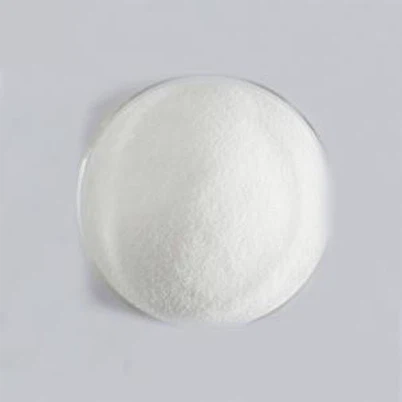Trends in Sunscreen Encapsulation Technology in 2024
Leave a message
Sunscreen formulations have evolved significantly over the past few decades, driven by increasing consumer awareness of skin protection and the growing demand for more efficient, long-lasting, and eco-friendly products. One of the most promising advancements in this field is the development of sunscreen encapsulation technologies. Encapsulation refers to the process of enclosing active ingredients, such as UV filters, in protective carriers or microcapsules. This allows for controlled release, enhanced stability, and better skin absorption, making sunscreen products more effective and user-friendly. As of 2024, several emerging trends in sunscreen encapsulation are reshaping the market, driven by innovations in materials science, sustainability, and consumer preferences.
1. Nano-encapsulation for Enhanced Stability and Efficacy
Nano-encapsulation technology has become one of the leading trends in the sunscreen industry. Nano-sized carriers, such as liposomes, solid lipid nanoparticles (SLNs), and nanostructured lipid carriers (NLCs), are being used to encapsulate UV filters, improving their stability, solubility, and bioavailability. UV filters are often unstable when exposed to light or air, leading to degradation and reduced efficacy. By encapsulating these active ingredients at the nanoscale, researchers can protect them from environmental factors and ensure that they remain effective for a longer period.
For example, leading sunscreen brands like La Roche-Posay and Neutrogena have integrated advanced nano-encapsulation techniques in their formulations, ensuring that active ingredients such as avobenzone or octinoxate are better protected and more stable when applied to the skin. This results in longer-lasting sun protection and a more comfortable application.
2. Slow and Controlled Release for Extended Protection
A key advantage of sunscreen encapsulation is the ability to control the release of active ingredients over time. This approach extends the duration of protection, potentially reducing the frequency of reapplication and improving consumer convenience. Slow-release formulations are increasingly being adopted in the industry to offer a sustained sunscreen effect, which is particularly important for consumers who spend extended periods outdoors or engage in water activities.
Recent products like Eucerin's Sun Protection Transparent Spray SPF 50+ utilize encapsulation to provide sustained protection, allowing the sunscreen to remain effective even after sweating or swimming. By encapsulating UV filters within biodegradable microcapsules, these products ensure that the sunscreen ingredients are gradually released onto the skin, providing continuous defense against harmful UV rays.
3. Incorporation of Biodegradable and Eco-friendly Encapsulation Materials
Sustainability has become a major driving force behind innovation in the skincare and cosmetics industries. The development of eco-friendly and biodegradable encapsulation materials has gained traction as the need for environmentally conscious products increases. Consumers are increasingly aware of the impact of sunscreen ingredients on marine life, particularly coral reefs, and demand for reef-safe products has grown significantly.
In 2024, many companies are focusing on developing encapsulation systems that use plant-based, biodegradable, or recyclable materials. For instance, Biomimetics has been at the forefront of creating encapsulation materials made from natural waxes, lipids, and polysaccharides, which break down harmlessly in the environment. By using these eco-friendly carriers, sunscreens not only maintain their performance but also minimize their environmental impact.
Additionally, some brands are moving away from traditional synthetic encapsulation materials, like polyethylene and polypropylene, in favor of natural options. This transition aligns with the industry's broader push towards sustainability, as well as the growing popularity of "clean beauty" products.
4. Improved Skin Penetration and Sensory Benefits
Encapsulation technologies are also evolving to enhance the sensory attributes of sunscreen products. By using advanced carriers such as liposomes or solid lipid nanoparticles, sunscreen formulations can improve skin penetration, ensuring that active ingredients are delivered more effectively to the epidermis without causing irritation. This is especially relevant for sensitive skin types, where traditional sunscreen formulations may cause discomfort or breakouts.
Products like EltaMD UV Clear Broad-Spectrum SPF 46, which uses encapsulated zinc oxide, are designed to provide superior skin penetration without leaving a greasy residue or white cast. This improves the overall user experience, making sunscreens feel more like lightweight moisturizers, and appeals to consumers seeking a non-oily, non-comedogenic option.
5. Hybrid Technologies Combining Sunscreen with Other Skin Benefits
Another exciting trend in sunscreen encapsulation is the hybridization of sunscreen with additional skincare benefits. Brands are now developing multi-functional products that combine sun protection with anti-aging, moisturizing, or antioxidant effects. These formulations use encapsulated active ingredients that offer both sunscreen protection and other therapeutic benefits such as collagen boosting or enhanced hydration.
For example, Shiseido's Ultimate Sun Protector Lotion SPF 50+ features a proprietary encapsulation technology that not only provides high-performance sun protection but also incorporates moisturizing agents and antioxidants. By encapsulating vitamin C and other skin-rejuvenating ingredients, these hybrid products deliver a comprehensive skincare solution, appealing to consumers looking for both sun defense and skincare enhancement in a single product.
6. Personalized Sunscreen through Custom Encapsulation
With the increasing availability of advanced formulations and personalized skincare, some brands are now exploring the potential of tailored sunscreen products. By using encapsulation technologies, companies can create sunscreens that are customized based on individual skin types, concerns, or exposure levels. This trend is particularly evident in the growing market for customized skincare solutions, where consumers can select specific UV filters, antioxidants, or moisturizing agents based on their unique needs.
Innovative companies like ISDIN have launched personalized sunscreen offerings that combine sunscreen with skincare ingredients tailored to individual skin tones, types, and lifestyle needs. These products leverage advanced encapsulation to deliver an optimal blend of sun protection and active ingredients.
Conclusion
The sunscreen industry in 2024 is experiencing a renaissance, driven by the continuous advancement of encapsulation technologies. Innovations in nano-encapsulation, slow-release systems, biodegradable materials, and hybrid formulations are not only improving the efficacy and longevity of sunscreens but also offering consumers more environmentally responsible and personalized options. As new technologies emerge, it is likely that sunscreens will become even more effective, comfortable, and versatile, catering to the evolving demands of modern consumers. By enhancing both performance and user experience, sunscreen encapsulation is poised to become a cornerstone of the next generation of sun protection products.







